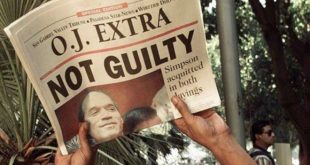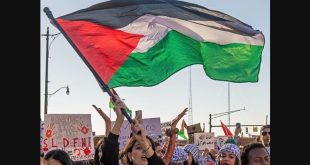 Editor’s note: Part one of this column can be found here.
Editor’s note: Part one of this column can be found here.
9. What are your thoughts on fundamentalism and Islamic extremism and the reasons for its expansion?
“Islamic fundamentalism, which in contrast to true Islam, is known for its characteristic religious dictatorship, misogyny, religious discrimination, inhumane punishments, and unimaginable deception, was born with the mullahs’ regime in Iran in 1979. The mullahs proliferated this reactionary thought throughout the region starting three decades ago. These are characteristics that are exactly the same for fundamentalists under the Shiite banner and fundamentalists under the Sunni banner. The growth of fundamentalism, which has today manifested itself in ISIS, is culturally and historically the result of the proliferation of such ideology by the mullahs in Iran. From a political standpoint, the cruel suppression of Sunnis in Iraq by the Iranian-affiliated Iraqi government and their marginalization and widespread massacre of people in Syria, again at the hands of a dictatorship tied to the mullahs and the IRGC, created the breeding ground for this phenomenon.
But the solution to Islamic extremism lies in an alternative that is based on a democratic and tolerant Islam. In Iran, this alternative is represented by the MEK, which has been able to promote a pioneering role model for the entire region. This is one of the reasons for the 27 attacks and massacres of residents at Camp Ashraf and Camp Liberty, which have taken place in recent years at the hands of the mullahs and their puppet government in Iraq. The residents of Ashraf and Liberty are the representatives and advocates of such an alternative.”
10. What is your assessment of Rouhani’s one-year record in various arenas, specifically human rights in Iran? Have there been any changes?
“Mullah Hassan Rouhani’s sixteen-month record reveals a complete defeat for him and for the entire regime. More than 1,200 executions during his tenure, including hangings of juveniles, a slate of acid attacks and stabbings against women, detaining of lawyers, journalists, new Christian converts, Sunnis, Dervishes (a branch of Shiism) and Bahaiis, and the ratification of extremely suppressive laws are only a part of his record. In April, Rouhani personally defended the executions and said that they can be considered either as Islamic edicts or as man-made laws, and in both cases we are responsible for implementing them. In October, the regime’s Ministry of Intelligence and Security (MOIS), on his orders, actively defended the hanging of Reyhaneh Jabbari, a young woman who had defended herself against a man trying to rape her. In the second week of December, the Intelligence Minister, who is very close to Rouhani, proudly boasted about a list of dissidents his ministry was responsible for assassinating outside of Iran’s borders.
Rouhani has also failed to deliver on his promises to improve the economy. The value of the country’s currency is even lower than its lowest point during Ahmadinejad’s tenure, the price of bread has increased to the highest level in Iran’s history, official estimate put the number of starving people at 12 million, and two in five people are unemployed.
As a result, once more it has been proven that the hopes for the rise of a “moderate” inside the religious fascism is nothing but a mirage.”
11. Your movement has had a central role in exposing the regime’s nuclear program. What do you think is the nature of this program?
“There is no doubt that the program entirely has military objectives. Since revelations about the existence of the secret sites in Arak and Natanz in 2002 until now, the Iranian Resistance has made over 100 documented revelations about sensitive and wide-ranging details of this program, all of which expose its military objectives.
The Iranian Resistance has in this way trapped the mullahs, even as western governments have for years offered incentives to the mullahs instead of adopting a firm stance, which has granted the mullahs an opportunity to expand their nuclear program.
But the role and activities of the Resistance have created an extensive social awareness inside Iran in protest to this program, depriving it of any sort of legitimacy whatsoever. On the basis of such public opposition, our movement seeks a non-nuclear Iran in its political platform.”
12. Is Tehran still seeking a nuclear weapon?
“The regime is certainly pursuing a nuclear weapon. In the course of the year-long negotiations in Geneva and Vienna, the P5+1 and the mullahs openly talked about a nuclear breakout capacity. Moreover, the mullahs have still not provided a complete list of their nuclear installations; they have not responded to IAEA questions about “explosive trigger tests” and “computer simulations related to nuclear explosions;” they are still not prepared to allow inspections of the Parchin site; and in the words of the UN nuclear watchdog, there are still no guarantees about the absence of “unannounced nuclear materials and activities.” If the regime truly is not pursuing nuclear weapons, then what explains such resistance and obstructive behavior when it comes to the IAEA?”
13. In your opinion, what elements should a nuclear agreement with the Iranian regime include and what elements should the West insist upon?
“For the ruling regime in Iran to forego nuclear weapons, the following are necessary:
– The full implementation of UN Security Council resolutions, especially the complete halt of enrichment;
– Acceptance of the Additional Protocol;
– And, granting of free access for inspectors to the regime’s suspicious installations and sites.
Anything less than this would leave open the regime’s path toward obtaining a nuclear bomb.”
14. What is your idea of a correct policy toward Tehran?
“The correct policy is for the global community to stand with the Iranian people and the Iranian Resistance instead of appeasing the religious fascism. One of the prerequisites to this policy is making diplomatic and trade relations with the mullahs contingent upon an end to executions and torture, and putting an end to the regime’s intransigence in the region.
So long as the mullahs have not been compelled to end execution and torture, they would neither forgo nuclear weapons nor their ambitions of domination and terrorism in the Middle East.
The other prerequisite for a correct policy is the recognition of the Iranian people’s Resistance to bring about change in Iran.
In their confrontation against a decaying tyranny, the Iranian people have a democratic alternative with a clear platform that seeks a secular and pluralistic republic, gender equality, a society based on respect for human rights and the abolition of the death penalty, abdication of the mullahs’ Sharia laws, providing equal economic opportunities to all, a non-nuclear Iran, and peace and co-existence with the rest of the world.”
15. Would you agree with more sanctions on the regime?
“The mullahs will only forgo their nuclear program, human rights violations and export of fundamentalism to the region if they are at the height of despair and desperation. Therefore, the pressure of sanctions on the regime must be increased. This is exactly the opposite of the mullahs’ plan, who have put their focus on lifting of the sanctions.
But sanctions must include all financial, trade, oil, military and diplomatic aspects. Several UN Security Council resolutions, particularly UNSC Resolution 1929, have called for an arms embargo on the regime and the prohibition of all regime activities related to ballistic missiles capable of delivering nuclear warheads. And they permit all countries to inspect cargoes originating from or destined to Iran. But as a result of the policy of western governments, and especially the U.S., even these resolutions are not being implemented.”
16. How do you see the prospects for change in Iran?
“Change in Iran is inevitable. This is not only due to the crises gripping the mullahs, the regime’s nuclear impasse, or the blows it has received in Iraq and Syria. Beyond all this, change is inevitable because of the intense social discontent in Iran and the social readiness to revive popular uprisings. This is the most important reason that explains why the mullahs have resorted to splashing acid on women’s faces and why they have increased the number of executions to levels not seen in the last quarter of a century, not to mention the attacks and imposition of pressures against the Iranian Resistance and especially the residents of Camp Liberty.”
The mullahs’ regime in Iran represents the rule of a minority of less than five percent of the population that relies on sheer force. Without torture, daily executions, censorship, and complete control, they cannot remain in power even a day longer. But, this exceedingly wobbly and unstable situation is not at all sustainable.
As a former U.S. Ambassador to the UN for Human Rights, I can verify that thefailure to address the horrific record of the Tehran regime will guarantee failure when dealing with a dictatorial regime like the mullahs have run in Iran since 1979. President Rajavi should be thanked for helping us as Americans return to our best traditions and our greatest success.
Photo credit: “Maryam Rajavi in 2006” – Licensed under Public Domain via Wikimedia Commons.
 Ken Blackwell is a senior fellow at the Family Research Council and the American Civil Rights Union, and on the board of the Becket Fund for Religious Liberty.
Ken Blackwell is a senior fellow at the Family Research Council and the American Civil Rights Union, and on the board of the Becket Fund for Religious Liberty.
 Black Community News News and Commentary for Christians
Black Community News News and Commentary for Christians



